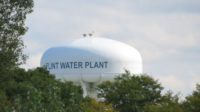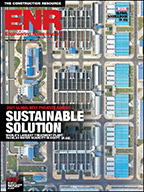Engineers Go Global
 | U.S. engineering students and professionals are taking their skills and enthusiasm around the world through EWB-USA. More than 40 EWBs in other countries also have their own active or developing projects. Wipe-off board in Bernard Amadei’s office is one nexus of the expanding activity. |
 | Mexico Carroll’s EWB-USA chapter is also helping a Catholic orphanage near Mexico City develop a water-reuse project for its 300 children that will provide an income and ensure sustainability in the future. |
 | Blackfeet Reservation, Montana EWB-USA students from Carroll College in Helena, Mont., host tribal middle schoolers at annual summer camp to teach engineering and environmental skills and reduce the high-school dropout rate. |
 | Guatemala Wisconsin-based EWB-USA students and professionals are uniting Mayan communities with bridges built to U.S. standards that will allow commerce and education even when river levels are high. |
 | India Gaining support of local “clients” is key to project sustainability for EWBs. India’s chapters are improving sanitation and water supply in Hyderabad and bioremediating industrial pollution in Tamil Nadu. |
 | Rwanda Alternative energy and pollution-reducing technologies developed by EWB-USA engineers could earn revenue-producing carbon credits that will boost village economies and train locals to sustain. |
 | Thailand EWB-USA active and proposed projects in include storm drainage for tsunami victim housing, sand filtration for a school’s drinking water and sun-pasteurized water purification. |
| Afghanistan Students in Colorado University’s Engineering for Developing Communities progiram (EDC) are creating a fuel briquette business in Kabul to employ street children and young adults. |
| Palestine EWB chapter members in Palestine and Israel in June will work on a project to build modular sustainable housing in Bethlehem. Mediterranean-area chapters will meet in Cyprus for fi rst time in April. |



-copy_ENRready.jpg?height=200&t=1660150075&width=200)

